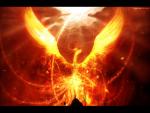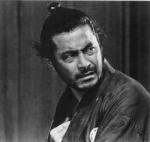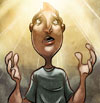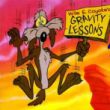Quote
Sorry to hijack Gamet's thread here.
I find most of the writers on AW are probably not that into fantasy (except the fantasy section, obviously), especially epic fantasy. I dunno, I reckon that if you did a poll of epic fantasy readers, you would find that most not only read prologues, but actually enjoy reading prologues.
I mean, look at when Erikson, Jordan etc pre-release a prologue... people go mental for that shit.
I guess my point is you have to extract the advice that's going to work for you, and the genre you're writing in. I must admit that I would probably hate most of the books that people on AW are writing.
Quote
You do have a point about the prologues of most epic fantasy writers - their fans do go ape-shit crazy over that kind of thing. I guess I agree with the prologue thing because I want to bring more of a literary focus to (epic) fantasy to try and draw more people into the genre. A wordy prologue just won't cut it for me, anymore.
Quote
Sure, a prologue has to have a point. If it's really a chapter one, then call it chapter one. It should be distinct in some way.
Whether or not I want to read a wordy prologue depends on what mood I'm in at the time. I generally don't go for Jordan-esque books, but when I'm in the mood for it, I love how his prologues are up to 90 pages long, and I'm in the mood for his slow, detailed style.
So other than removing the prologue, what ways do you see that you're bringing a literary focus to fantasy?
PS - we should be having this convo in thread - excellent discussion points smile.gif
In order to answer, I think I need to bring up how I think fantasy is dividing. Back in Tolkien's day and the birth of such writers as Brooks, Zelazny, Jordan, Eddings, etc. you had epic high fantasy where either the authors used the basic elf/dwarf/human/orc distinction, quest plots, or overly descriptive narration that all culminated in the huge clash between good and evil.
Now, I'm not a literary expert by any means, but to my thinking we then had writers such as Glen Cook emerge with a new style that threw you into the action instead of spoon-feeding description and started to throw in shades of grey for everything, or just make everything dark and somber. Martin also fits into this era, what with his ability to make everything shades of grey.
Then we have writers like Erikson taking what Cook did and adapting it to the epic fantasy plotline.
All of this 'typical' fantasy aside, there are also the movements of magical realism, new weird, urban fantasy, steampunk, cyberpunk, etc. that are starting to come to the foreground in the fantasy genre. I'm generalizing here, but in many of these new sub-genres the writing is superb and on a rather literary level - or perhaps that's just my interpretation of the tighter prose and clearer images that these modern authors imbue their works with.
Either way, I feel like these new sub-genres need to leak back into the 'typical' fantasy plotline and bring a more literary and well-written front to the high, or epic fantasy plotlines. It can only improve the tropes that have been done to death before (and unfortunately are still rehashed by some lucky authors out there - lucky as in, i'm surprised they were published(Tom Lloyd, I'm looking at you))
Now to answer the question: I want to bring more of a literary feel to fantasy by not only trying to perfect world-building, but bringing new races into the mix, and making 'normal fantasy staples' (such as elements) truly ingrained in my world-building so they are no longer 'normal fantasy staples' but a realistic aspect of my world that I no longer have to put a spotlight on. Then, by keeping my prose controlled and keeping the manuscript from being overly wordy and succinctly telling the story, I should be able to make my world vivid enough to link the literature into the fantasy.
Now, I'm sure further discussion on this will get me to elucidate my points, since I know I can jump around when typing things like this, so does anyone have any comments? Perhaps their own ideas for bringing new ideas into the 'typical' fantasy of the day?
The only thing I ask is that this topic not devolve into everyone simply talking about their own works and how they're bringing something new to the game and ignoring everyone else's discussion on the overarching topic at hand.

 Help
Help
















